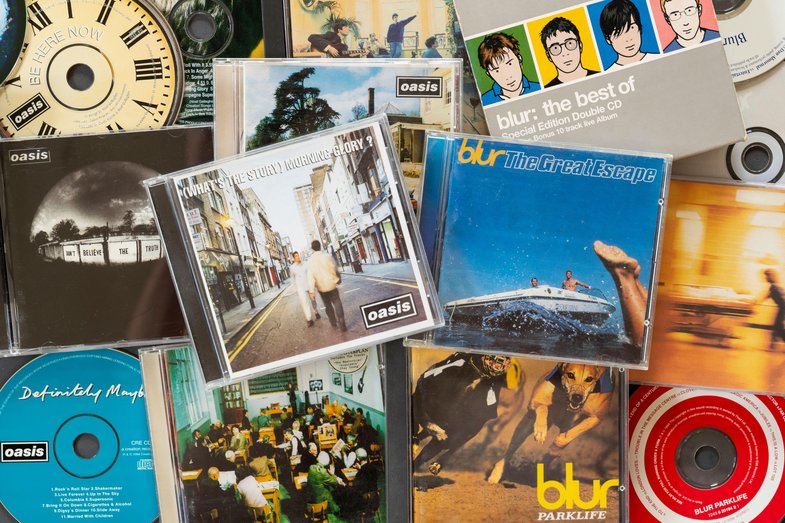For one week in August 1995, UK pop music caused a furore not witnessed since the height of Beatlemania. With the Britpop scene well on its way to peaking, its two biggest acts, Blur and Oasis, vied for supremacy by releasing their new singles on exactly the same day – and the entire country held their breath to see who would emerge victorious. Indeed, even if you weren’t interested in what became known as the “Battle Of Britpop”, it was impossible to avoid the Blur vs Oasis skirmish as it unfolded in the press.
“You couldn’t turn on a news programme without it being featured,” Andy Ross, co-founder of Blur’s label, Food Records, recalled in a 2015 NME interview. “My missus’ dad lives in Norway, and the Oslo Times had it on the front cover that week. If it was front-page news in Norway, it was probably front-page all around the world. Even America took notice. It was a focal point for a generation.”
“Yanks go home!”
Britpop would continue to dominate UK pop music for another two years after the Blur vs Oasis face-off, but it was never really a coherent “scene”, and its origins are difficult to pin down definitively. Broadly, Britpop can be viewed as a British retort to the Seattle-based grunge scene which made stars of US acts such as Nirvana, Pearl Jam and Soundgarden in the early 90s, its spearhead acts often overtly referencing British culture and putting emphasis on what NME referred to as a “youthful exuberance and desire for recognition” rather than the dourness and negativity synonymous with grunge and US alt-rock in general.
However, while Blur, Oasis and (to a slightly lesser extent) Pulp would become Britpop’s leading lights, the band who inadvertently launched Britpop were the talented but fractious London quartet Suede. Initially led by the brilliant but star-crossed team of vocalist Brett Anderson and Bernard Butler, the group’s self-titled debut album became the fastest-selling British debut in UK history on its release, and then Select magazine put them on the cover in April 1993 under the provocative headline, “Yanks go home!”
That same issue of Select also ran features on new, quintessentially English acts such as The Auteurs, Saint Etienne, Denim and Pulp, and the idea of a “Britpop” scene began to coalesce. Returning disillusioned from a dispiriting US tour in 1992, Blur also adopted a more traditionally English stance. Damon Albarn’s team began to namecheck UK groups such as The Kinks and The Small Faces in interviews, and their second album, Modern Life Is Rubbish, featured memorably English-slanted songs such as For Tomorrow and Sunday Sunday.




